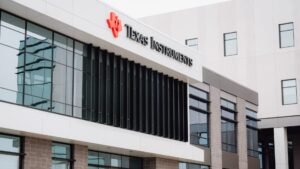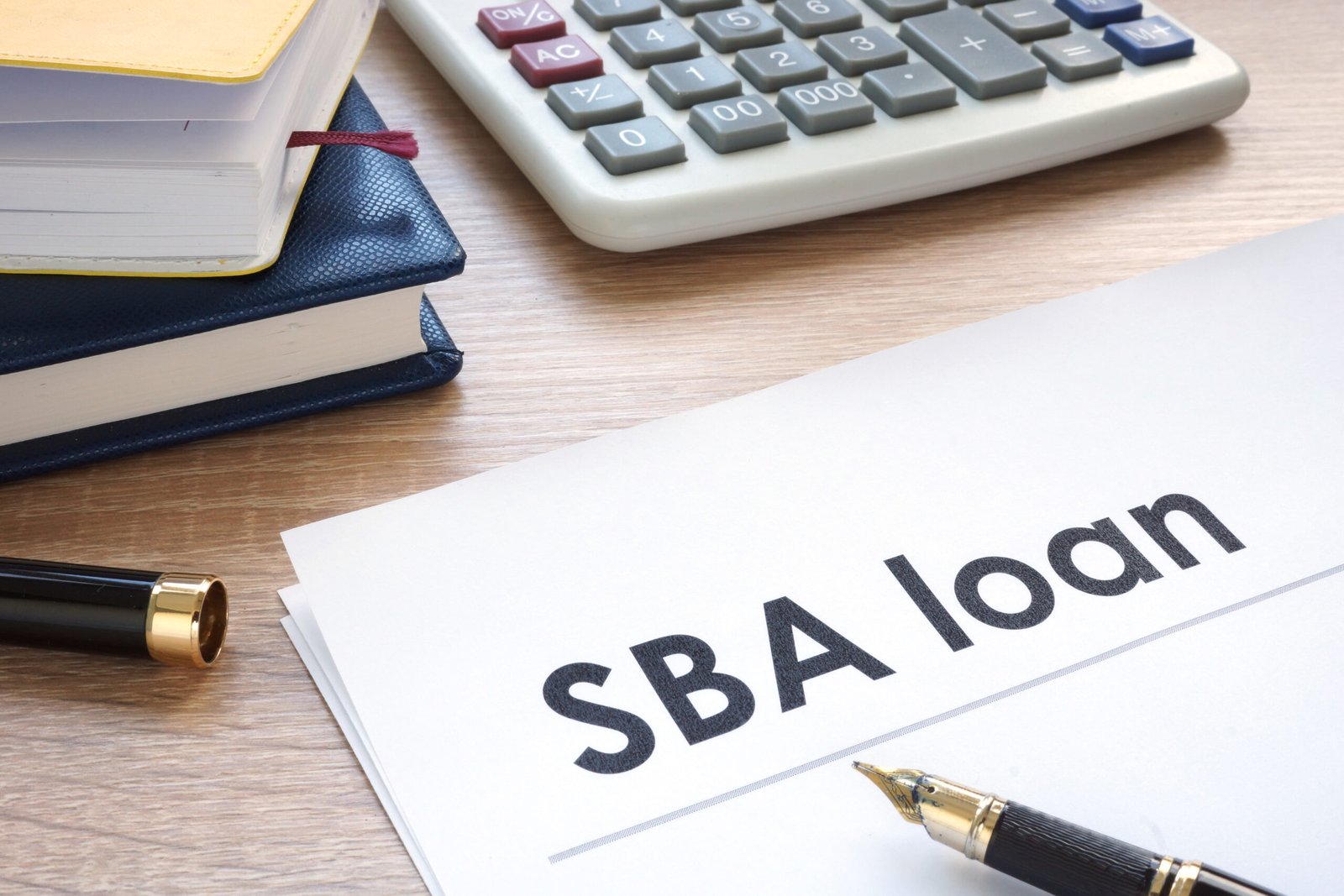What is an SBA Loan?
An SBA loan is a type of loan guaranteed by the Small Business Administration (SBA) and issued through participating lenders, such as banks or credit unions. The SBA itself does not provide loans but works with lenders to make small business loans more accessible and attractive by reducing the risk for lenders.
SBA loans are ideal for small businesses that may struggle to qualify for traditional financing. They typically offer lower down payments, longer repayment terms, and competitive interest rates compared to conventional loans.
Common Types of SBA Loans:
- SBA 7(a) Loan: The most common SBA loan, used for a wide range of business needs, including working capital, equipment purchases, and real estate.
- SBA 504 Loan: Primarily used for purchasing or improving fixed assets like real estate and equipment.
- SBA Microloan: Smaller loans (up to $50,000) used for starting or growing small businesses.
The Purpose of an SBA Loan:
SBA loans are specifically designed to support the growth of small businesses by financing property or equipment needed for business operations. The goal is not to fund investments that generate income from rentals or capital appreciation, but to help businesses acquire the assets they need to function.
Can You Use an SBA Loan for Investment Property?
In short, no. You cannot use an SBA loan to buy property with the sole intent of generating passive rental income or appreciating the property’s value for investment purposes.
Here’s why:
1. SBA Loans Are Meant for Owner-Occupied Properties:
- The SBA requires that the property being purchased is used primarily for business operations. This means that to be eligible for an SBA loan, at least 51% of the property must be occupied by your business. If you’re planning to buy property simply to rent it out or flip it for profit, SBA loans are not an option.
- The goal of SBA loans is to help entrepreneurs expand their businesses rather than invest in real estate.
2. Primary Use is for Business Operations:
- The property must be used for active business operations. If you purchase a building for your business to operate in (e.g., office space, retail, or warehouse), that is an eligible use of an SBA loan.
- A portion of the property may be rented out (for example, you could lease out part of the building while using the rest for your own operations), but the business must occupy the majority of the space.
SBA Loan Types and Their Impact on Real Estate Purchases:
1. SBA 7(a) Loan:
- This loan can be used to purchase commercial real estate, but the property must be primarily for business use. If you are purchasing a building to run your business and only a small portion of it will be rented out, you can use the SBA 7(a) loan.
- However, rental properties (where the primary purpose is generating rental income) are not eligible.
2. SBA 504 Loan:
- The 504 loan can be used for the purchase of commercial property, and it’s designed for businesses looking to buy or improve fixed assets like buildings or equipment. However, as with the 7(a) loan, the property must be owner-occupied and used for the business’s operations.
- Mixed-use properties (e.g., a building with both business operations and residential units) could potentially be eligible, but the business must occupy more than 50% of the space.
Exceptions and Flexibility in SBA Loans:
While investment properties aren’t allowed, there are some scenarios where an SBA loan could be used indirectly for real estate investment, as long as the primary use is business-related:
1. Owner-Occupied Properties with Mixed-Use:
- If you’re purchasing a building for business purposes but also plan to rent out a portion of it (e.g., leasing a floor to another business), you can use an SBA loan. For example:
- A retail shop buying a building with apartments on top and renting out the apartments (as long as the retail portion is more than 51% of the space).
- An office space where you rent out extra offices to other businesses but operate your own business in the majority of the building.
2. Real Estate for Expanding Business:
- If you are growing your business and purchasing additional space for operations, SBA loans are often used for purchasing new buildings. This could include expanding into larger facilities or even acquiring additional properties to serve your growing needs.
3. SBA Loan for Commercial Property:
- SBA loans can be used for purchasing commercial real estate for your business, such as:
- Office buildings
- Industrial warehouses
- Retail spaces
- The building must be used to operate your business, and you must occupy at least 51% of the property.
Alternatives to SBA Loans for Buying Investment Property:
If you’re specifically looking to buy investment property, you won’t be able to use an SBA loan, but there are plenty of other financing options to consider:
1. Conventional Commercial Loans:
- These are loans provided by traditional banks or lenders for businesses purchasing commercial real estate. Unlike SBA loans, these loans don’t require the property to be owner-occupied, which makes them an ideal option for real estate investors.
- They usually require a larger down payment (typically 20-30%) and come with higher interest rates, but they provide more flexibility for purchasing investment properties.
2. Hard Money Loans:
- A hard money loan is a short-term loan secured by real estate, often used for investment purposes such as flipping properties. These loans are typically offered by private lenders and are easier to qualify for than traditional loans, but they come with higher interest rates and shorter repayment terms.
3. FHA Loans for Multi-Family Homes:
- If you’re looking to buy a multi-family property (up to 4 units) and plan to live in one of the units, you could use an FHA loan. FHA loans are designed for owner-occupied properties, but since you will be living in one of the units, this is an option for real estate investors who want to house hack (live in one unit while renting out the others).
4. Commercial Real Estate Loans:
- For larger properties, such as office buildings, shopping centers, or industrial properties, a commercial real estate loan is often the most suitable option. These loans are designed specifically for investment properties and come with terms and interest rates based on the property’s potential income.
Conclusion:
While an SBA loan is a great option for small business owners looking to buy commercial real estate for their business operations, it is not meant for purchasing investment properties. If your goal is to generate rental income or invest in property for appreciation, you will need to explore alternative financing options like conventional commercial loans, hard money loans, or even FHA loans for multi-family homes.
Always consult with a lender or financial advisor to determine the best financing option based on your investment strategy and long-term business goals.
Frequently Asked Questions (FAQ) About Using SBA Loans for Investment Property
1. Can I use an SBA loan to buy investment property?
No, SBA loans cannot be used to purchase investment properties that are intended for rental income or capital appreciation. SBA loans are meant for owner-occupied properties where your business will operate. The SBA requires that at least 51% of the property be used for business purposes.
2. What types of properties can I buy with an SBA loan?
You can use an SBA loan to buy properties where your business operations will take place. This can include:
- Office space
- Retail stores
- Warehouses
- Manufacturing facilities
You can also buy mixed-use properties, as long as your business occupies at least 51% of the space.
3. Can I rent out part of the property if I use an SBA loan?
Yes, you can rent out part of the property as long as your business occupies the majority (more than 51%) of the space. For example, you could buy a commercial property, use it for your business, and lease out extra offices or floors.
4. Can I use an SBA loan to buy a property for flipping or real estate investment?
No, SBA loans cannot be used to buy property for the purpose of flipping or generating rental income. SBA loans are not designed for investment properties; they are for business-use properties only.
5. What if I want to buy a multi-family property?
SBA loans can be used to buy multi-family properties (up to 4 units), but you must occupy at least one of the units as your primary residence, and the property must be used for business purposes. If you’re using the property for personal residence and business operations, this could be eligible.
6. Can I buy commercial property with an SBA loan?
Yes, you can use an SBA loan to buy commercial real estate for business use. For example, if you’re buying an office building or a warehouse for your company, this is eligible. The key is that the property must be used for your business, not as a pure investment for rental income.
7. Can I use an SBA 7(a) loan for real estate?
Yes, you can use an SBA 7(a) loan to buy commercial real estate, as long as the property is used primarily for business purposes. You cannot use this loan for real estate that is only meant for investment or rental purposes.
8. What about an SBA 504 loan?
An SBA 504 loan is also available for purchasing real estate, especially for businesses that want to buy or improve commercial properties. The property must be used for business operations, and you must occupy more than 51% of the space.
9. Can I buy an investment property with an SBA loan if I am a real estate investor?
No, SBA loans are not designed for real estate investors looking to buy properties strictly for investment purposes. If you’re looking to purchase rental properties or flip homes, you’ll need to explore other financing options like conventional loans, hard money loans, or commercial real estate loans.
10. Can I use an SBA loan to buy a property for a startup business?
Yes, if you’re starting a business and need real estate to operate, you can use an SBA loan to purchase the property. The key is that the property must be used primarily for your business operations. Whether it’s an office, retail location, or manufacturing facility, the property must serve the business you are starting.
11. What happens if I don’t use the property for business purposes after getting an SBA loan?
If the property is no longer used for business purposes, you may be in violation of the SBA loan terms. This could result in the SBA calling the loan due, which means you may have to repay the loan in full immediately. It’s crucial to follow SBA guidelines and ensure that the property continues to serve business operations.
12. Are there any other financing options if I want to buy investment property?
Yes! If you’re primarily interested in investment properties, consider the following alternatives:
- Conventional commercial loans (offered by banks or private lenders)
- Hard money loans (short-term, private lender loans)
- FHA loans for multi-family properties (if you plan to live in one of the units)
- Commercial real estate loans for larger properties such as office buildings, shopping centers, or apartment complexes
Read More:









